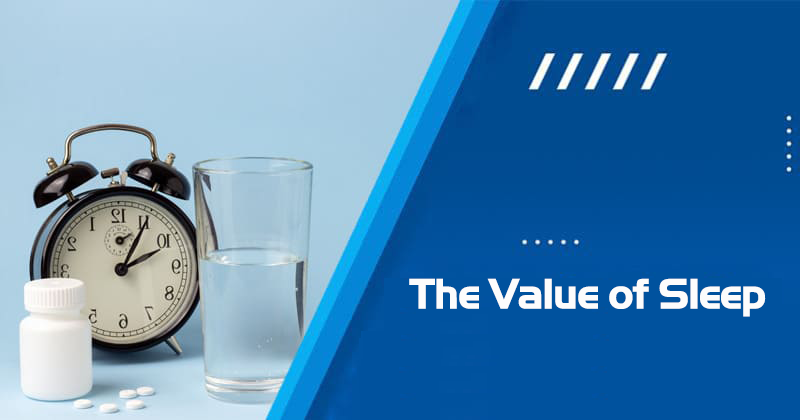Introduction
Defining Sleep Deprivation
Sleep deprivation refers to a condition where an individual consistently fails to get enough sleep, either due to external factors or internal disruptions. The ideal amount of sleep varies by age, but adults typically require 7-9 hours per night to maintain optimal physical and mental health. Sleep deprivation can be acute (short-term) or chronic (long-term), with varying degrees of severity that profoundly affect the body and brain.
The Critical Role of Sleep
Sleep is essential for both physical restoration and mental functioning. It supports cognitive processes such as memory consolidation, decision-making, and emotional regulation. Without sufficient sleep, the body and mind cannot repair themselves, leading to numerous health and psychological challenges.
The Importance of Understanding Sleep Deprivation
Recognizing the consequences of sleep deprivation is crucial in a fast-paced modern world where sleeplessness is often glamorized. Understanding its effects can inspire individuals to prioritize sleep and adopt healthier habits to safeguard their mental and physical well-being.
Effects of Sleep Deprivation on the Brain
Sleep is a fundamental biological need, intricately linked to the health and function of the brain. When sleep is deprived—whether due to lifestyle, stress, or health conditions—the effects ripple through the brain, impairing its ability to regulate critical processes. The consequences of sleep deprivation are both immediate and long-term, affecting cognition, mood, and overall neurological health.
One of the most immediate effects of sleep deprivation is a decline in cognitive performance. Memory consolidation, a process largely dependent on restful sleep, becomes compromised, making it difficult to retain and recall information. The prefrontal cortex, responsible for decision-making and problem-solving, also suffers. Tasks requiring focus, creativity, or multitasking become increasingly challenging as the brain struggles to process and organize information efficiently.
Emotionally, sleep deprivation disrupts the balance of neurotransmitters, particularly serotonin and dopamine, leading to heightened irritability, anxiety, and even depressive tendencies. The amygdala, the brain’s emotional control center, becomes hyperactive while its communication with the prefrontal cortex weakens. This imbalance can result in exaggerated emotional responses or difficulty in regulating emotions.
In the longer term, chronic sleep deprivation poses serious risks to brain health. Studies have shown that it contributes to an accumulation of amyloid-beta proteins, which are associated with Alzheimer’s disease. This occurs because sleep plays a vital role in the brain’s glymphatic system—a network that clears toxins during deep rest. Without adequate sleep, this system falters, increasing the risk of neurodegenerative diseases.
Furthermore, prolonged sleep deprivation affects the brain’s reward system. It disrupts the release of dopamine, reducing feelings of motivation and pleasure. Over time, this imbalance can lead to addictive behaviors as individuals seek external stimuli to compensate for the lack of natural rewards.
Lastly, the physical structure of the brain is not immune to sleep deprivation. Gray matter volume in regions such as the hippocampus and prefrontal cortex may decrease with prolonged poor sleep. This structural damage correlates with memory deficits, impaired reasoning, and reduced emotional resilience.
In conclusion, the effects of sleep deprivation on the brain are profound and multifaceted. From impairing short-term cognitive function to increasing the risk of long-term neurological disorders, the evidence underscores the necessity of prioritizing sleep for mental and emotional well-being. Sleep is not merely a passive state of rest but a vital process for maintaining the intricate and delicate machinery of the brain.
Impaired Cognitive Abilities
- Example: Difficulty concentrating while working, studying, or driving.
- Explanation: Sleep deprivation hinders the prefrontal cortex, the brain area responsible for higher-order functions such as problem-solving, reasoning, and focus. Studies show that sleep-deprived individuals perform worse on tasks requiring sustained attention, increasing the risk of accidents and errors.
Memory Decline
- Example: Forgetting a newly introduced colleague’s name or missing essential tasks.
- Explanation: During sleep, the brain consolidates memories by transferring information from short-term storage in the hippocampus to long-term storage in the neocortex. Lack of sleep interrupts this process, leading to poor retention and recall. A 2007 study published in Nature Neuroscience confirmed that sleep loss severely impairs memory formation.
Reduced Creativity
- Example: Struggling to generate innovative ideas or solve problems creatively.
- Explanation: Creative thinking is closely tied to brainwave activity during REM (rapid eye movement) sleep. Sleep deprivation reduces REM sleep, stifling divergent thinking and the ability to form novel connections.
Emotional Instability
- Example: Increased irritability, heightened anxiety, or depressive symptoms.
- Explanation: Sleep deprivation disrupts the balance of hormones such as serotonin and cortisol, which regulate mood. A study in The Journal of Clinical Psychiatry revealed a strong link between chronic sleep loss and mood disorders such as depression and anxiety.
Effects of Sleep Deprivation on Physical Health

Sleep is a fundamental pillar of human health, as vital as nutrition and exercise. Yet, in the fast-paced modern world, many people sacrifice sleep to accommodate their busy schedules, often unaware of the toll it takes on their physical health. Sleep deprivation, defined as consistently getting less sleep than the body needs, has far-reaching consequences that affect nearly every system in the body.
One of the most immediate effects of sleep deprivation is a weakened immune system. During sleep, the body produces cytokines—proteins essential for combating infections and inflammation. Without adequate rest, the production of these protective substances declines, leaving individuals more vulnerable to illnesses such as the common cold or influenza. Chronic sleep deprivation can also impair the body’s ability to recover from injury or fight off diseases, increasing the risk of long-term health complications.
Another significant impact of insufficient sleep is on cardiovascular health. Sleep is critical for heart repair and regulation. During deep sleep stages, the body reduces blood pressure and heart rate, allowing the cardiovascular system to rest and recover. When sleep is consistently cut short, this restorative process is disrupted, leading to chronic high blood pressure, inflammation, and an increased risk of heart disease and stroke.
Metabolic health also suffers under the strain of sleep deprivation. Inadequate sleep interferes with the body’s ability to regulate blood sugar levels and appetite. Sleep-deprived individuals often experience increased cravings for high-calorie, carbohydrate-rich foods due to imbalances in hunger hormones like ghrelin and leptin. Over time, this can contribute to weight gain and increase the risk of developing type 2 diabetes.
The musculoskeletal system is not immune to the effects of sleep deprivation either. Restorative sleep is essential for muscle repair and growth, particularly after physical exertion. Without it, the body struggles to recover from exercise or injury, resulting in decreased physical performance and a higher risk of chronic pain conditions.
Moreover, prolonged sleep deprivation accelerates the aging process at a cellular level. Research shows that insufficient sleep is associated with shorter telomeres, the protective caps on chromosomes that shorten with age. This biological marker links poor sleep habits to premature aging and an increased risk of age-related diseases.
In summary, sleep deprivation is far more than a minor inconvenience—it is a profound threat to physical health. From weakening the immune system and heart to undermining metabolic and musculoskeletal function, the consequences of insufficient sleep are severe and cumulative. Prioritizing sleep is not a luxury but a necessity, vital for maintaining a robust and healthy body over the course of a lifetime.
Weakened Immune System
- Example: Higher susceptibility to common colds and infections.
- Explanation: Sleep supports the production of cytokines, proteins essential for immune responses. Sleep-deprived individuals produce fewer cytokines, reducing their ability to fight infections effectively.
Increased Risk of Chronic Diseases
- Example: Heart disease, diabetes, and obesity.
- Explanation: Sleep deprivation contributes to inflammation, hypertension, and impaired glucose metabolism, all of which increase the risk of chronic illnesses. The Harvard Medical School has linked insufficient sleep to heightened cardiovascular risks.
Metabolic Disruptions
- Example: Weight gain and insulin resistance.
- Explanation: Sleep deprivation alters the balance of hunger-regulating hormones, ghrelin (stimulating appetite) and leptin (indicating satiety). As a result, individuals often overeat, particularly high-calorie foods, and face greater risks of metabolic syndrome.
Risk Factors and Vulnerable Populations
Risk factors and vulnerable populations are critical concepts in public health, social work, and policy-making, highlighting the interplay between individual characteristics, environmental influences, and societal structures that contribute to disparities in health and well-being.
Risk Factors
Risk factors are variables or conditions that increase the likelihood of negative outcomes, such as illness, injury, or social hardship. These factors can be broadly categorized into three groups:
- Biological and Genetic Factors: These include age, sex, genetic predisposition, and pre-existing health conditions. For instance, older adults and individuals with compromised immune systems are more vulnerable to infectious diseases.
- Behavioral Factors: Lifestyle choices such as smoking, poor diet, physical inactivity, or substance abuse significantly contribute to chronic diseases like diabetes, cardiovascular illnesses, and cancer.
- Environmental and Social Factors: Adverse environmental conditions—such as exposure to pollution, unsafe housing, or occupational hazards—combine with social determinants like poverty, lack of education, and limited access to healthcare to exacerbate risk.
Understanding and mitigating these factors is essential for effective intervention strategies that promote resilience and prevent adverse outcomes.
Vulnerable Populations
Vulnerable populations are groups of individuals at greater risk of experiencing poor health or social outcomes due to systemic inequities, barriers to resources, or inherent disadvantages. These populations often include:
- Socioeconomic Disadvantage: Low-income individuals and families often lack access to healthcare, nutritious food, and safe living conditions, creating a cycle of poverty and poor health.
- Marginalized Communities: Racial and ethnic minorities, LGBTQ+ individuals, and indigenous populations often face discrimination, reduced opportunities, and cultural or linguistic barriers to care.
- Age Groups: Children, due to their dependency, and older adults, due to declining health and social isolation, are particularly susceptible to adverse outcomes.
- Individuals with Disabilities or Chronic Illness: These groups face physical, mental, and social challenges that limit their access to opportunities and support systems.
- Displaced or Stateless Populations: Refugees, asylum seekers, and internally displaced individuals often endure trauma, unstable living conditions, and limited access to resources.
Efforts to support vulnerable populations require tailored, inclusive policies that address their unique needs while dismantling systemic barriers. Public health campaigns, community outreach, and social reforms play pivotal roles in achieving equity and safeguarding these groups from harm.
By identifying and addressing both risk factors and the needs of vulnerable populations, societies can work towards more equitable health outcomes and a higher quality of life for all.
Causes of Sleep Deprivation
- Examples: Stress, irregular work shifts, excessive screen time, stimulant use, and sleep disorders like insomnia.
- Explanation: Modern lifestyles and technological habits frequently interfere with natural sleep cycles.
At-Risk Groups
- Examples:
- Students: Often sacrifice sleep for academics or socializing.
- Office workers: Frequently experience stress and irregular schedules.
- Older adults: Struggle with age-related sleep disorders.
- Chronic illness patients: Face disruptions due to pain or medication side effects.
Solutions to Address Sleep Deprivation

Sleep deprivation is a widespread issue with profound effects on physical health, mental well-being, and overall productivity. Addressing it requires a multifaceted approach that incorporates lifestyle changes, environmental adjustments, and sometimes medical intervention. Below are some effective solutions to mitigate sleep deprivation.
1. Establish a Consistent Sleep Schedule
One of the most effective strategies is maintaining a regular sleep routine. Going to bed and waking up at the same time every day, even on weekends, helps regulate the body’s internal clock. Consistency fosters better sleep quality and reduces the likelihood of insomnia.
2. Create an Optimal Sleep Environment
A conducive sleep environment plays a significant role in improving sleep quality. Ensure the bedroom is quiet, dark, and cool. Investing in blackout curtains, white noise machines, or earplugs can minimize disruptions. Comfortable bedding and a supportive mattress further enhance the quality of rest.
3. Limit Exposure to Screens and Artificial Light
Electronic devices emit blue light, which interferes with the production of melatonin, the hormone responsible for regulating sleep. Limiting screen time at least an hour before bedtime and using blue-light-blocking glasses or screen filters can help promote a natural sleep cycle.
4. Adopt a Relaxation Routine
Engaging in calming activities before bed prepares the mind and body for sleep. Practices such as reading, meditating, deep breathing exercises, or taking a warm bath can signal to the brain that it’s time to wind down.
5. Monitor Caffeine and Alcohol Intake
Caffeine and alcohol can significantly disrupt sleep patterns. It’s advisable to avoid caffeine in the late afternoon and evening, as its stimulating effects can linger for hours. Similarly, while alcohol may induce drowsiness, it often leads to fragmented and poor-quality sleep.
6. Engage in Regular Physical Activity
Exercise is a natural sleep aid, helping to regulate the sleep-wake cycle. However, timing is crucial—intense workouts close to bedtime can be stimulating and counterproductive. Aim for moderate exercise earlier in the day to reap the sleep-enhancing benefits.
7. Manage Stress and Anxiety
Stress and anxiety are common culprits of sleep deprivation. Techniques like journaling, mindfulness, or therapy can help alleviate mental strain, paving the way for a more restful night.
8. Seek Medical Advice When Necessary
If sleep deprivation persists despite lifestyle changes, it may indicate an underlying medical condition such as sleep apnea or chronic insomnia. Consulting a healthcare provider can help identify the root cause and explore treatments, including cognitive-behavioral therapy for insomnia (CBT-I) or medication when appropriate.
9. Embrace Napping Strategically
Short naps, no longer than 20-30 minutes, can be refreshing and improve alertness without interfering with nighttime sleep. Avoid napping too late in the day to maintain a healthy sleep cycle.
10. Educate and Prioritize Sleep
Finally, understanding the critical role of sleep in overall well-being is key. Viewing sleep as a non-negotiable necessity rather than a luxury helps prioritize healthy habits and reduce the risks associated with chronic deprivation.
By adopting these strategies, individuals can combat sleep deprivation and reclaim their health, energy, and mental clarity. A commitment to better sleep is, ultimately, a commitment to a better quality of life.
Establishing Healthy Sleep Habits
- Examples:
- Maintain consistent sleep and wake times.
- Create a quiet, dark, and comfortable sleep environment.
- Avoid screens and stimulants before bedtime.
Adopting a Healthier Lifestyle
- Examples:
- Engage in regular physical activity.
- Limit caffeine and alcohol intake.
- Follow a balanced diet rich in nutrients.
Seeking Professional Help
- Examples:
- Consult a therapist or sleep specialist for persistent sleep issues.
- Explore treatments for underlying conditions like insomnia or sleep apnea.
Conclusion
Recap of Sleep Deprivation’s Impact
Sleep deprivation wreaks havoc on mental and physical health, impairing cognitive abilities, emotional balance, and immune function. Long-term consequences include chronic diseases and diminished quality of life.
Physically, sleep deprivation undermines the body’s restorative processes. It compromises immune function, leaving individuals more vulnerable to infections. Chronic lack of sleep is also linked to an increased risk of serious conditions like heart disease, diabetes, and obesity. Muscle repair, hormone regulation, and energy restoration—all critical functions—suffer when sleep is cut short.
Cognitively, sleep deprivation impairs concentration, decision-making, and memory. The brain struggles to process and retain information, leading to decreased productivity and heightened errors. Over time, these effects can accumulate, hampering academic, professional, and personal performance. Reaction times slow, posing significant risks in activities requiring alertness, such as driving or operating machinery.
Emotionally, insufficient sleep heightens stress, irritability, and mood instability. The prefrontal cortex, which governs impulse control, becomes less effective, making individuals more prone to emotional outbursts and poor decision-making. Prolonged sleep deprivation is also a significant risk factor for mental health disorders, including anxiety and depression.
In the long term, the cumulative impact of sleep deprivation extends beyond individual health. Relationships can strain under the weight of irritability and communication difficulties, and societal costs, such as workplace accidents and healthcare expenditures, rise.
In essence, sleep is a cornerstone of health and well-being. Prioritizing adequate rest is not merely a personal choice but a necessity for thriving in a fast-paced and demanding world.
The Value of Sleep

Adequate sleep is non-negotiable for maintaining a healthy, fulfilling life. It is essential for productivity, emotional well-being, and physical vitality.
In the stillness of the night, when the world wraps itself in the soft embrace of darkness, there exists a quiet magic—sleep. It is the unsung hero of our lives, silently mending the threads of our being while we drift into its arms. Sleep is not merely a pause; it is a profound act of renewal, an essential rhythm of existence that breathes life into our days.
In sleep, our bodies heal. The wear and tear of daily life are soothed as muscles rebuild and energy is restored. But sleep does not merely tend to the physical. It nurtures the mind, sweeping away the clutter of the day, organizing thoughts, and locking memories into place. The chaos of waking hours is softened, and clarity emerges, like a sunrise breaking through mist.
For the dreamer, sleep is a voyage. It takes us to realms unbound by reality, where the impossible becomes commonplace. In dreams, we confront fears, rekindle forgotten hopes, and explore the vast landscapes of our imaginations. These nocturnal journeys are not escapism; they are windows into the self, offering insights that the waking mind might overlook.
Yet, in the modern world, sleep is often seen as expendable, sacrificed on the altar of ambition or entertainment. Nights are traded for deadlines, and rest is considered a luxury, not a necessity. But this neglect comes at a cost. Without sleep, even the brightest minds falter, creativity dims, and emotions become unruly. The body protests in whispers at first—fatigue, irritability—until it eventually shouts with illness.
The value of sleep cannot be measured in hours but in its impact. It is the foundation of resilience, the secret to productivity, and the guardian of well-being. To honor sleep is to honor life itself, to recognize that even in stillness, there is growth and transformation.
So, when the day is done and the stars begin their silent vigil, let us embrace sleep as a gift. Let us surrender to its rhythm, trusting in its quiet power to restore and renew. For in its embrace, we find not just rest, but the strength to dream, to heal, and to live fully once more.
Final Advice
Prioritize your sleep by implementing positive lifestyle changes. Recognize its importance not as a luxury but as a cornerstone of overall health. By doing so, you can protect your mind and body from the far-reaching effects of sleep deprivation.



